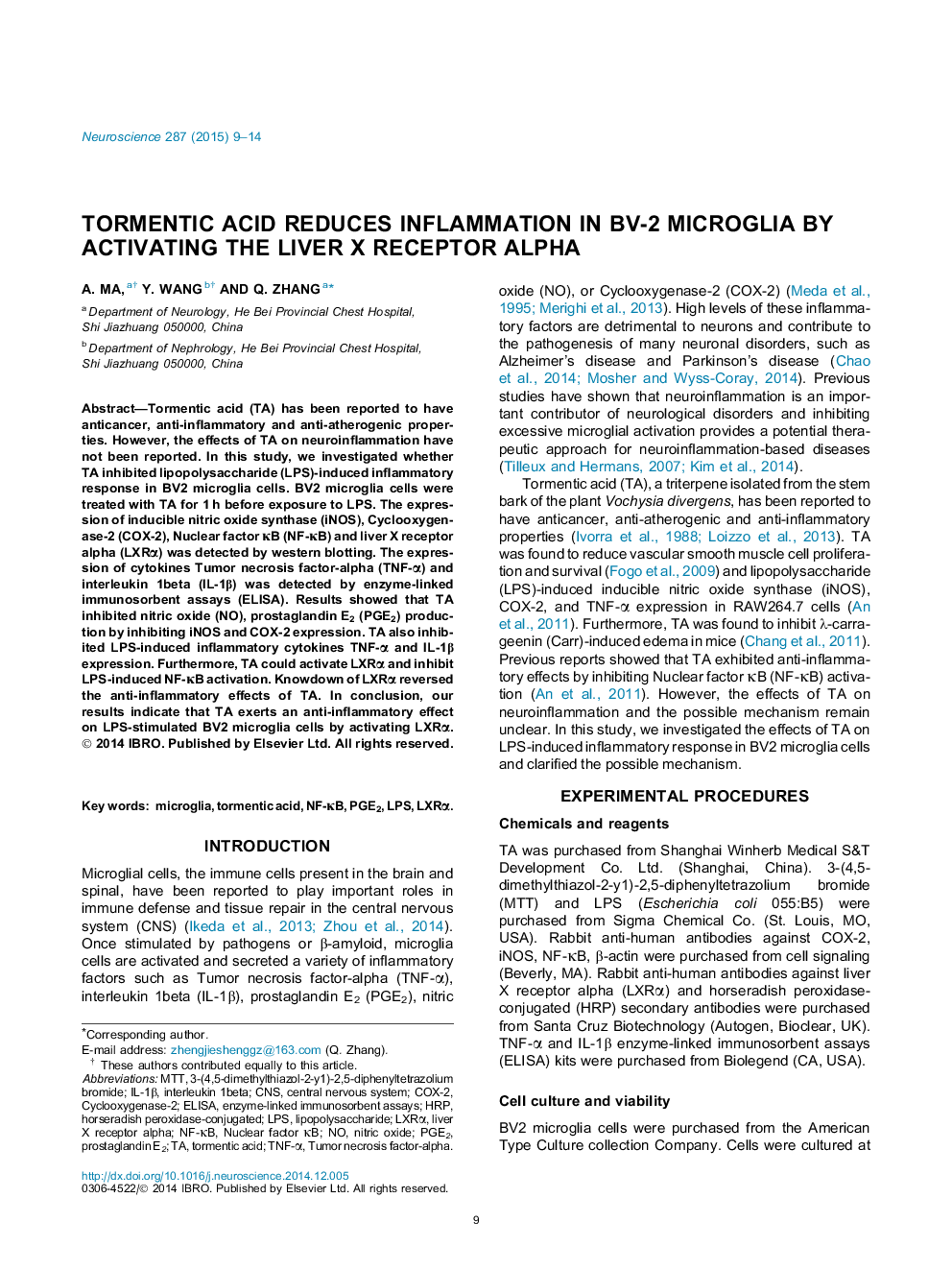| کد مقاله | کد نشریه | سال انتشار | مقاله انگلیسی | نسخه تمام متن |
|---|---|---|---|---|
| 6272833 | 1614789 | 2015 | 6 صفحه PDF | دانلود رایگان |

- TA inhibits NO, PGE2 production by inhibiting iNOS and COX-2 expression.
- TA inhibits LPS-induced inflammatory cytokines TNF-α and IL-1β expression.
- TA activates LXRα and inhibits LPS-induced NF-κB activation.
- Knowdown of LXRα reversed the anti-inflammatory effects of TA.
Tormentic acid (TA) has been reported to have anticancer, anti-inflammatory and anti-atherogenic properties. However, the effects of TA on neuroinflammation have not been reported. In this study, we investigated whether TA inhibited lipopolysaccharide (LPS)-induced inflammatory response in BV2 microglia cells. BV2 microglia cells were treated with TA for 1 h before exposure to LPS. The expression of inducible nitric oxide synthase (iNOS), Cyclooxygenase-2 (COX-2), Nuclear factor κB (NF-κB) and liver X receptor alpha (LXRα) was detected by western blotting. The expression of cytokines Tumor necrosis factor-alpha (TNF-α) and interleukin 1beta (IL-1β) was detected by enzyme-linked immunosorbent assays (ELISA). Results showed that TA inhibited nitric oxide (NO), prostaglandin E2 (PGE2) production by inhibiting iNOS and COX-2 expression. TA also inhibited LPS-induced inflammatory cytokines TNF-α and IL-1β expression. Furthermore, TA could activate LXRα and inhibit LPS-induced NF-κB activation. Knowdown of LXRα reversed the anti-inflammatory effects of TA. In conclusion, our results indicate that TA exerts an anti-inflammatory effect on LPS-stimulated BV2 microglia cells by activating LXRα.
Journal: Neuroscience - Volume 287, 26 February 2015, Pages 9-14